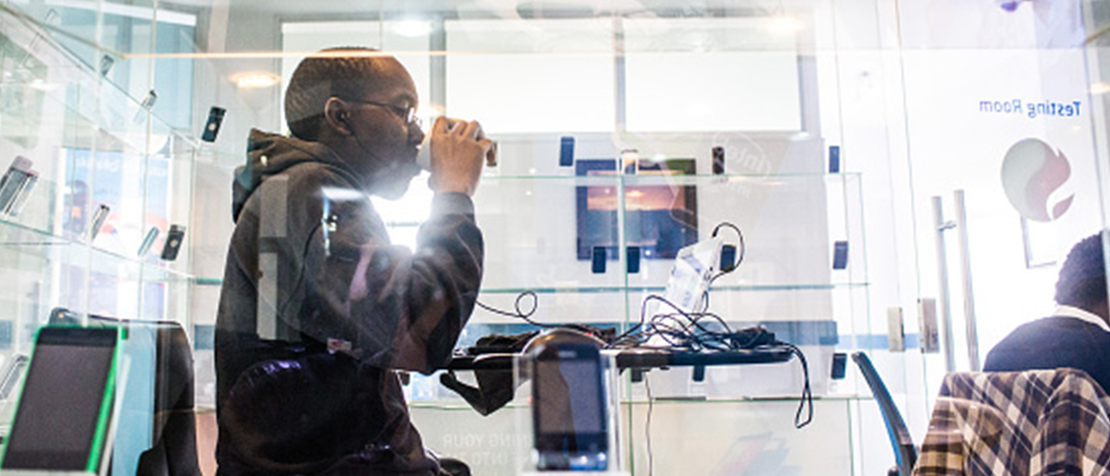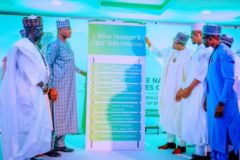Artificial intelligence (AI) and related technologies have the potential to inspire growth and solve problems in Africa, yet Africa still struggles to get itself into the conversation.
This is concerning because AI relies on data, and when the appropriate social, cultural, and political contexts are not provided, it can entrench existing inequalities, prejudices, and injustices. For example, a paper written by computer scientists, Timnit Gebru and Joy Buolamwini showed how facial recognition software was less accurate when identifying women and people of colour compared to white men.
According to Tortoise Intelligence, globally, AI companies attracted $77.5 billion investment last year, a 115% increase from the $36 billion recorded in the year before that. This represents the growing interest in AI from investors and governments, which can be traced from COVID-19, the report noted. But, in Africa, a large part of the ecosystem’s investments is concentrated in very few startups. In 2019, Africa’s AI ecosystem raised $11.27 million—up by 223% from the $3.6 million in 2018—and Tunisia’s InstaDeep $7 million raise represents 62% of the total investment made that year in the ecosystem. Similarly, in 2020, South Africa’s DataProphet $6 million accounted for half of the $11.63 million raised, solidifying South Africa as the hub of AI development on the continent.
Michael Chui, a partner at the McKinsey Global Institute, explained that a sudden need for digital collaborative spaces and remote working tools during the pandemic forced business leaders to understand the need for digitisation, and this demand included further investments in AI and automation. Unsurprisingly, a CNBC survey revealed that 81% of executives worldwide believe AI will play a prominent and critical role in how their business operates this year.
Last month, all eyes were on Africa’s AI ecosystem when Tunisian AI startup InstaDeep, which helps companies create decision making systems for solving real-world problems, raised a $100 million Series B funding, the biggest raise by an AI startup on the continent—or by any startup from the region. InstaDeep was founded in 2014 by Karim Beguir and Zohra Slim and bootstrapped until it received external funding in 2018.
But before then, in 2017, the startup joined NVIDIA’s Inception Programme, a global programme designed to nurture AI and data science startups, as a Premier member. Through this programme, InstaDeep was able to buy its first NVIDIA DGX Station, an AI system that brings AI supercomputing to data science teams. The programme provided InstaDeep with marketing and technical support and introductions to help grow its network.
Focus on Africa
NVIDIA is one of the biggest chip makers in the world and is best known for its unique line of graphics processing units (GPU)—a single-chip processor that handles mathematically intensive tasks in parallel, rather than serially, the way a CPU does. NVIDIA is also one of the leaders in deep learning
The GPUs that NVIDIA creates were initially used to process pixels for 3D graphics, but in the last decade, because of its adept ability at processing data, it has become a tool AI researchers use for deep learning. Fast forward to today, NVIDIA has grown to become the pioneer of the modern AI, deep learning, and machine learning market. It allows developers, researchers, and scientists around the world to build applications for accelerated computing on top of its platform, including in Africa.
NVIDIA expressed intentions to intensify its support for the African AI ecosystem when it hired Fatima Tambajang as its Head of Developer Relations for Africa. “Africa is a hugely important market for NVIDIA, which is why we are working within its developer ecosystem,” NVIDIA said in an email.
Kate Kallot, Head of Emerging Areas, speaking about NVIDIA’s work on the continent during last year’s AI Expo, highlighted the work another Inception Programme member, South African AI startup, Aerobotics, is doing to help farmers protect their crops and maximise yields. Kallot revealed that Aerobotics has processed over 100 million trees across nearly 20 countries. The Inception Programme has also helped ATLAN Space create an AI-powered drone that scans thousands of square miles of ocean and detects illegal fishing boats and other environmental threats.
Kallot explained that in the US, AI and data science innovation are driven by Big Tech; in China, they are driven by government investments; and in Europe, it is by individual laws like the General Data Protection Regulation (GDPR). In Africa, however, none of this applies: innovation is driven by individual developers, grassroots communities, and startups.
This is why NVIDIA is taking a different approach to engage with Africa’s AI ecosystem. Last year, NVIDIA launched the Emerging Chapters Programme—specifically for Africa but is now expanding to other emerging markets—to help these grassroots communities build and scale their AI and data science projects. NVIDIA partners with non-traditional pathway institutions and communities like Zindi, AI Centre of Excellence Kenya, and Data Science Nigeria.
While these AI communities consist of individual developers, run their incubators, do their own AI research, and partner with the government and international organisations, NVIDIA provides them with workshops from its AI experts through the Deep Learning Institute Programme and ships its hardware to them.
Citing an example of the progress the Emerging Chapter Programme has made, Kallot referred to Clinton Oduor, a computer science student at the Dedan Kimathi University of Technology (Dekut), who started as an AI and data science hobbyist but now leads the innovative tinyML Kenya community. Oduor and his team have built Makini, an offline learning device that uses speech to bring education to vulnerable children in remote areas through an interactive session at a low cost.
A few years ago, in 2019, tech giant Google opened its first AI centre in Africa in Ghana’s capital city, Accra. And now we have the trio of NVIDIA programmes: Inception, Deep Learning Institute, and Emerging Chapter working hand in hand to aid AI development in Africa. Consulting firm PwC estimates AI and related technologies will add more than $15 trillion to the global GDP by 2030. Currently, Africa is playing catch up in the AI space, so NVIDIA’s investments are a welcome development to the ecosystem.






















